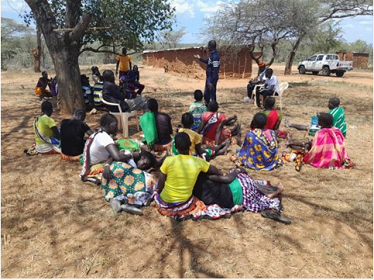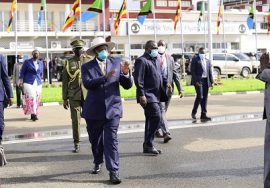
NARO moves to produce quality seeds for Karamoja
NARO is working with 115 farmer groups and over 18,000 small-scale farmers in Karamoja to produce quality seeds for Karamoja. The project supports the production of seeds for maize, sorghum, green gram, Coffee, and pasture seed. Also, new value chains like grapes, date palms, and olives that can thrive in semi-arid conditions have been introduced. The Karamoja community seed production is a one-year project supported by the Office of the Prime Minister and it covers all nine districts of the Karamoja sub region.
Dr. Anthony Raphael Ijala, NARO Research Officer and coordinator of the project stressed that the growing need for adaptable quality seed in the Karamoja sub region is key. Dr Ijala said that currently, there is rising acreage of land being opened in the region coupled with improving farmer field mechanization. And yet, farmers still experience predominant crop losses due to poor seed and related drought stresses. According to Dr. Ijala, most farmers still plant home grain and poor-quality seed, alien to the local weather conditions and with no attribution. The emerging local seed dealers have low capacity and skill in handling seed, flawed with poor attitudes towards seed business. Furthermore, seed distribution channels for needy farmers are often not timely and not matched with the local rainfall patterns. In a region with frequent hunger strikes and low incomes, the establishment of sustainable seed distribution systems becomes core.
The project focuses on the production of foundation seed and quality declared seed that will be easily accessible to small-scale farmers in the region. “A well-established seed distribution system in Karamoja will promote peace, food security, and local income in the subregion,” said Dr Paul Okullo, the Director of Research, Nabuin ZARDI. Dr. Okullo stated that NARO together with local government structures, MAAIF, Operation Wealth Creation, parish model groups, and other key stakeholders commit to improve quality seed access to farmers in the region. So far, over 300 acres of land have been opened, with over 100 acres at Nabuin and at farmer groups planted with Sorghum, green gram, maize, coffee, and pasture grasses.
Accordingly, sustained farmer groups will be motivated to produce quality declared seed with guaranteed markets. The involvement of the local NGOs and government distribution channels will enhance the marketing system. This project is anticipated to promote youth and women engagements among the Karamojong clans and community, hence inspiring peace and development in the region.
Credit: NARO website






